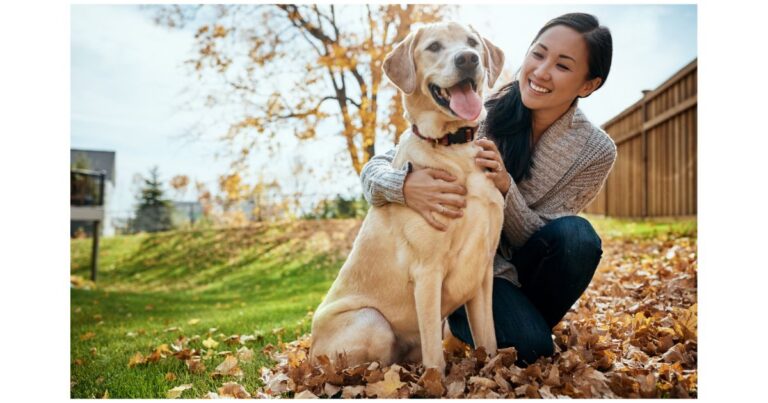Pet Parents All Share These 6 Distinctive Behaviors:
If you own a pet—dog, cat, bird, or toad—you might have one of these interesting qualities and not even know it. While every human is unique, there are some fascinating trends that point to pet owners doing things a little differently than everyone else. How many of these six behaviors do you do unconsciously?

1. Instinctive Tidiness
Pet owners are constantly on the lookout for a mess, either as a result of their pets or to prevent an issue with their pets. Some pet owners spend more than 800 hours a year cleaning their homes—this includes vacuuming up fur, cleaning muddy paw prints, deodorizing furniture, cleaning up accidents, and more.

Pet owners also have a keen eye for items that shouldn’t be left out or in reach of their pets. Cat owners might have tidier surfaces than non cat owners, especially if their cats are counter surfers. Dog owners will be quick to snatch a piece of plastic or dropped pen or pencil to prevent their pup from chewing it.
The responsibility of both keeping your pets safe and keeping your home tidy from their mess can be a big motivator for cleanliness.
2. Enthusiastic Socializing
Dog owners obviously get to know their neighbors pretty well, since they’ll walk the same route almost every day and see the same people. But multiple studies confirm that all pet owners, regardless of animal type, were more likely to get to know their neighbors than non-pet owners.

Some people meet their neighbors when their pet initiates the interaction, but others report “pets being a topic of conversation over the fence or when out in the yard” as the catalyst for a neighborly relationship. In some cases, people even indicated that they developed relationships by meeting neighbors whose kids wanted to see their exotic pet.
3. Brand Loyalty
This behavior might strike you as a little odd—what does pet ownership have to do with shopping habits? Well, as it turns out, these two things have a lot to do with each other!

For example, when shopping for cleaning supplies, pet owners choose their preferred brand 90% of the time. This is probably related to the link between pet ownership, staying organized, following a routine, and environmental awareness. Once you’ve found a product that works, is safe for your pet, and you can buy consistently, you’re likely to stick with that product.
4. Good Time Management
A survey conducted by Banfield Pet Hospital in 2018 discovered a link between corporate success and pet ownership. According to the study’s findings, pet owners demonstrate better time management than non pet owners.

If you own an animal, you know how important it is to stick to a routine. Even if you aren’t a naturally organized person, owning a pet can help you develop a schedule that you have to stick to. Dogs and cats, in particular, are routine animals who like to do things at the same time every day. If you feed your dog 15 minutes late, you’re going to hear about it from them.
Similarly, pet owners also show more aptitude for multitasking. Have you ever tried to cook dinner and keep a dog entertained at the same time? That takes skills!
5. Empathy
Pet owners are often the first people to leap into action when someone needs help. Pet owners self-report higher levels of empathy than non pet owners, and some statistics indicate that pet ownership in childhood could lead to lower levels of delinquency in adult life.

As pet owners, we spend every day caring for our animals and monitoring them for health and happiness. It seems only natural that that empathy and instinct to caregive would extend to the people in our lives, too.
On the flip side, there are some exceptions to the rule. It’s important as animal lovers that we stay grounded in our empathy, but some people simply don’t extend their love of animals to their fellow humans. “Researchers have demonstrated low human-centered empathy relates to enhanced concern for animal welfare,” says a study titled Exploring Narcissism And Human- And Animal-Centered Empathy In Pet Owners. “For example, some militant animal activists exhibit a great sense of animal-centered empathy and concern for animal welfare while directing violence towards humans in the name of their cause.”
Ultimately, it comes down to the individual, but one thing is for sure: people who are cruel to animals overwhelmingly show low empathy towards other humans.
6. Environmental Awareness
There is a clear correlation between good pet ownership and practicing environmental sustainability. It makes sense, right? People who love animals should naturally also love nature and the environment.

According to a study examining the “effect of pet ownership on environmental attitudes and behaviours in children,” researchers found that kids who were responsible for caring for pets—or even farm animals—were also more environmentally conscious. Adults who own pets also show similar trends toward eco-consciousness, and studies like these further enforce the idea that pet owners are more empathetic.
Related Articles:
- 10 Dog Breeds to Avoid Unless You Like Constant Barking, According to a Top-Rated Pet Sitter
- I’ve Been a Pet Expert for 20 Years,These Are the Dog Products I Absolutely Cannot Live Without
- The #1 Worst Dog Breed For Apartments, According To Property Managers & Renters



